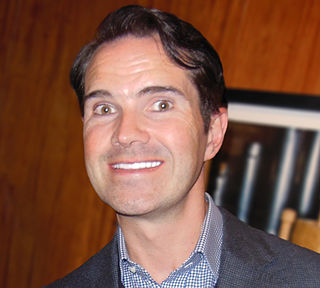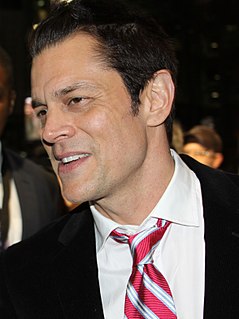A Quote by Holly Black
I remember everyone telling me I had to think positive when I was writing my first book. If I believed I could do it, then I could! If I pictured myself published, then it was going to happen! Which sounded great, except...could I do it? If I didn't think I could, was I doomed to fail? What if I was almost totally sure I would fail? I am here to tell you-what matters is sticking with it.
Related Quotes
I had so many other things I could fall back on as an entrepreneur (with multiple businesses). When I finally was true to myself and what I wanted to do - and acting was it - there was nothing else I could think of. I thought "If I fail, I'm falling hard (because) I don't have anything else to fall back on. Am I going to accept that?"...I never looked back. I never (let myself) put it in my mind to fail.
Once or twice a week I would set my alarm for six A.M. so I could get up and plug in Hot Stix...I would study the curls in the mirror, impressed with both the appliance and my newfound ability to use it. Then, without fail, at the last second before leaving for school, I would ask myself, "Am I supposed to brush it out or leave it?" Why could I never remember" That feeling of "I'm pretty sure this next step is wrong, but I'm just gonna do it anyway" is part of the same set of instincts that makes me such a great cook.
The rewrites are a struggle right now. Sometimes I wish writing a book could just be easy for me at last. But when I think about it practically, I am glad it's a struggle. I am (as usual) attempting to write a book that's too hard for me. I'm telling a story I'm not smart enough to tell. The risk of failure is huge. But I prefer it this way. I'm forced to learn, forced to smarten myself up, forced to wrestle. And if it works, then I'll have written something that is better than I am.
He had the attitude that he could do anything, and therefore so can you. He put his life in my hands. So that made me do something I didn't think I could do.... If you trust him, you can do things. If he's decided that something should happen, then he's just going to make it happen. (Elizabeth Holmes)
I believed even then that if I could transform my experience into poetry I would give it the value and dignity it did not begin to possess on its own. I thought too that if I could write about it I could come to understand it; I believed that if I could understand my life—or at least the part my work played in it—I could embrace it with some degree of joy, an element conspicuously missing from my life.
You know what I am going to say. I love you. What other men may mean when they use that expression, I cannot tell. What I mean is that I am under the influence of some tremendous attraction which I have resisted in vain, and which overmasters me. You could draw me to fire, you could draw me to water, you could draw me to the gallows, you could draw me to any death, you could draw me to anything I have most avoided, you could draw me to any exposure and disgrace. This and the confusion of my thoughts, so that I am fit for nothing, is what I mean by your being the ruin of me.
I remember when I was in graduate school and someone in workshop would say, 'I'm going to bring in a chapter of my novel.' The thought that someone could think they'd write a whole long thing... I could only see twelve pages ahead. But then I realized that if you could see twelve more after that, you can start.
Let me just say you could end this violence within a very short period of time, have a complete ceasefire - which Iran could control, which Russia could control, which Syria could control, and which we and our coalition friends could control - if one man would merely make it known to the world that he doesn't have to be part of the long-term future; he'll help manage Syria out of this mess and then go off into the sunset, as most people do after a period of public life. If he were to do that, then you could stop the violence and quickly move to management.






































